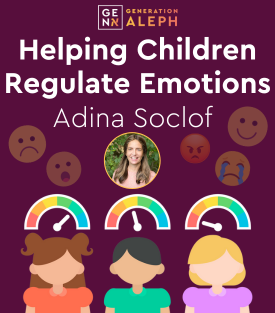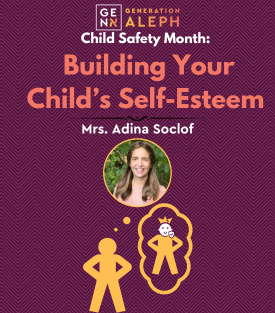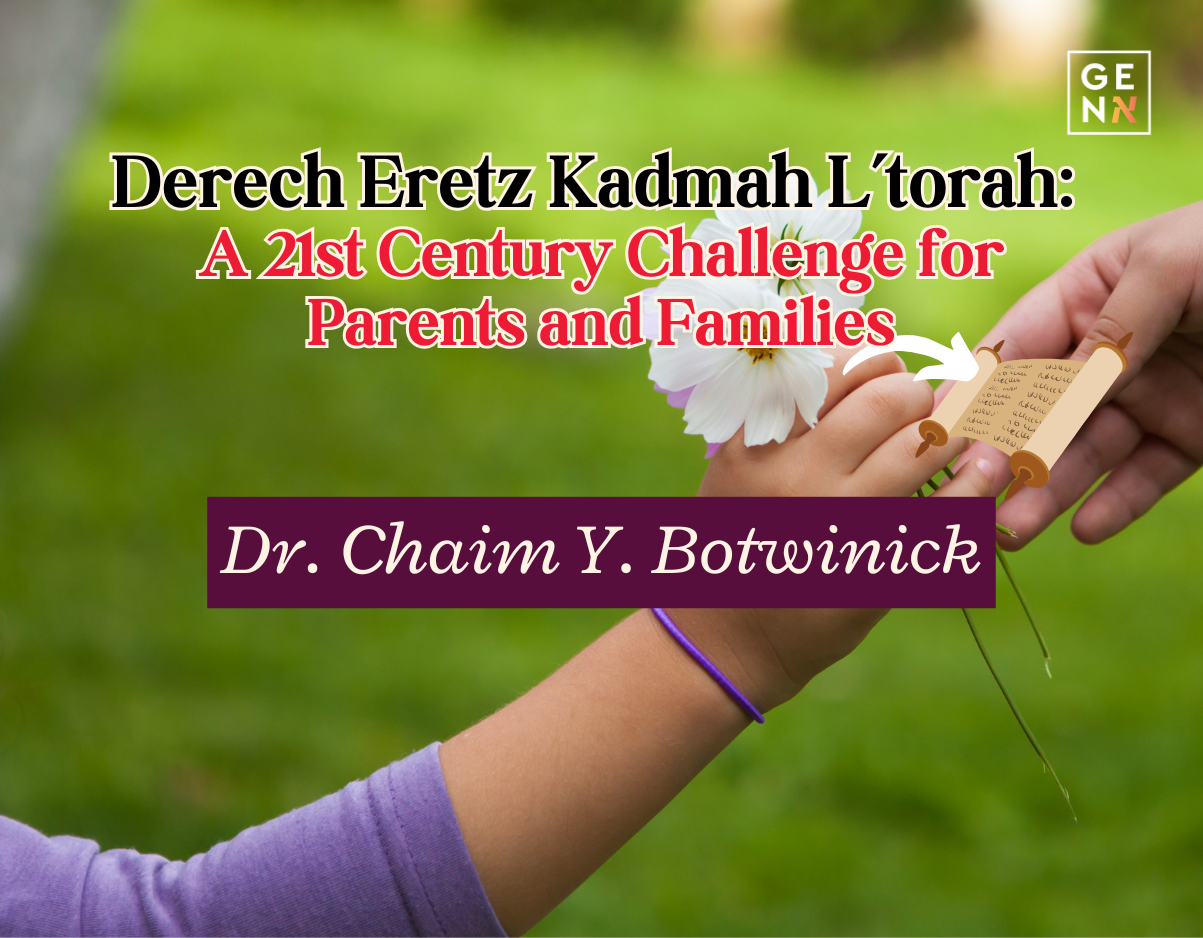One of the most often used phrases in describing the important concept of derech eretz (respectful behavior) is “Derech Eretz Kadmah LaTorah” – derech eretz proceeds (or comes before) the Torah.
At first blush, this phrase appears to be relatively simple and straight forward. In the total scheme of things, it should make perfect sense that respectful and exemplary middot and menschlichkeit are considered attributes, characteristics and behaviors which take precedence over the Torah. Or, to quote my high school Rebbe, “how is it even possible for one to engage in Torah study and learning, or to follow the laws, precepts and values of the Torah, if one is unable to exhibit proper behavior, middot and etiquette. It is antithetical at best”.
At the risk of getting caught-up on semantics, and the variety of important halachic interpretations and implications, I briefly introduce this topic with several points of reference.
The literal meaning of derech eretz is defined as “the way of the land” and is a term used to describe proper behavior. The concept of derech eretz kadmah l’torah is referenced in Leviticus Rabba 9:3. The term is further illustrative of the manner in which we view derech eretz as a top communal priority and responsibility; and as a blueprint or road map for the manner in which we are expected to behave, interact and speak with one another. To be sure, derech eretz according to the Torah is a mandate as well as a moral imperative.
Additional proof texts regarding the importance of derech eretz are found in Pirkei Avot (3:21) which states that “Rabbi Elazar ben-Azaria says: without the study of torah there can be no derech eretz; and, without derech eretz there can be no Torah”
The implications of these and other similar proof texts all have a significant cumulative impact upon our understanding of Derech Ertz kadma l’torah – the manner in which derech eretz precedes the importance of the Torah.
Implications for Parents and Families of Young Children
As educators and as parents of young children, we must be extremely vigilant and meticulous about how and when we use the phrase derech eretz kadma l’torah.
On the one hand, it is essential that this concept be understood and presented to young children within the context of how important derech eretz is without necessarily juxtaposing it to the importance of torah. On the other hand, the transmission of this important concept must be presented in an age-appropriate manner that enables the child to understand and appreciate the primacy of the Torah and derech eretz.
We never ever want to GD forbid present the Torah as one of secondary importance.
It is obvious that the older and more mature the child, the more flexible the parent can be when in transmitting and interpreting these important concepts.
As we drill down a bit deeper, our communities, not unlike society, are witnessing an accelerated erosion and degradation of moral values and standards which support the critical imperative for promoting and modeling derech eretz more directly and effectively.
As I have written and spoken about on numerous occasions, we are now beginning to see a most dramatic decline in respectful behavior and middot tovot in our communities, schools, institutions and households. This is not only evident among our youth, but has unfortunately seeped into our adult population.
This reality strongly suggests an imperative that we as parents, families, educators, communities and communal leaders do everything in our power to recapture the hearts, and mindsets of our children in order to help imbue in them a sense of derech eretz responsibility, menschlichkeit, obligation (achrayut), middot tovot and proper etiquette and behavior.
My initial approach for this brief article was originally envisioned to be one with a “glass half empty”. But, as I began to opine more critically about this challenge, I started thinking about all of the good and positive now taking place in our communities. This includes the amazingly inspiring chessed projects, Torah study, volunteerism, and tzedakka opportunities to name a few. To be sure, as a community we are far from starting from “ground zero” (on the derech eretz spectrum) but rather from an amazing place of tremendous strength, will, and commitment. The challenge is how do we harness these strengths and direct them in a manner that with bare maximum fruit.
Possible Approaches:
As parents and families, we have an awesome obligation and responsibility to provide our children with a solid foundation upon which they can build and grow into upstanding respectful adults.
Critical to this challenge will be the manner in which we model derech eretz for our children both in our homes and in the community.
Several approaches for consideration may include:
- Recognizing, supporting, rewarding and incentivizing derech eretz at home and in the community;
- Being careful, watchful and diligent about the words and language we use in the presence of our children Shmirat HaLashon and Shmirat HaDibbur);
- Ensuring that our interactions as parents and with other adults and family members are respectful and courteous;
- Speaking with our children about kindness, chessed and respect and how these values are deeply embedded in our Torah way of life;
- Spending quality time with our children and being “present” in their lives and when we respond to their questions and or concerns;
- The modeling of subtle yet very powerful modeling behavior such as: holding a door open for another person; helping an elderly person or person in need carry packages or cross the street; using the words please and thank you often; and showing public empathy for those less fortunate;
- Dressing appropriately in public and in private;
- Addressing a spouse with respect
- Exhibiting patience in the presence of children, when on line at a food counter, in traffic and when in a rush to reach a destination.
The above suggestions are just a small sample of ways in which parental behaviors can impact upon a child’s understand and appreciation of derech eretz. Being respectful or exhibiting middot tovot should no longer be a burden, but rather a natural extension of one’s repertoire of behaviors.
In conclusion, the concept of derech eretz kadma l’Torah is not only interpreted in the literal sense but has deep and profound meaning as it relates figuratively to our lives. In the absence of derech eretz, we cannot possible understand and appreciate the beauty, wonderment and profundity of our Torah.
In a brilliant volume entitled Chovas haTalmidim (Chapter 6), the great Rabbi Kalonymus Kalmish Shapira (the Rebbe of Plaseczna, 1889-1842) writes that “one of the principle reasons that few Torah giants arise from our generation is because children grew up thinking that it is perfectly alright to contradict (or speak against) their parents and leaders.”.
The ramifications implications of his words should be clear and obvious.
Submit your questions
"*" indicates required fields










